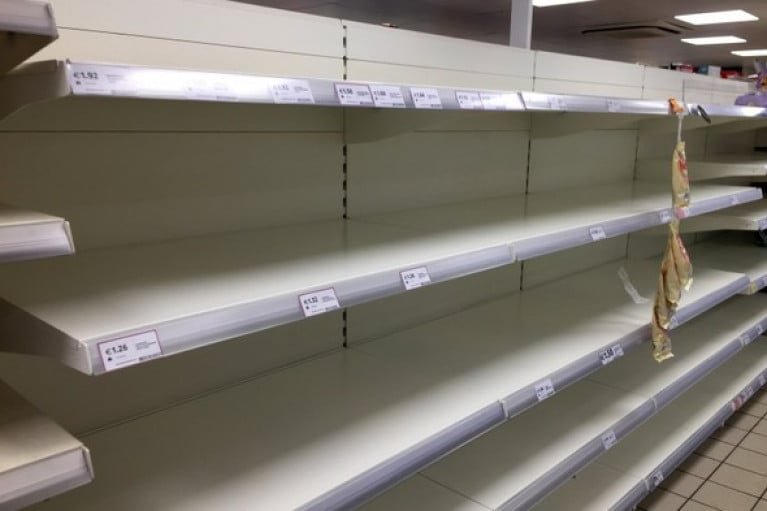Displaying items by tag: Freight Transport Assoc
Across the country's supermarkets have seen certain shelves completely emptied over the last week, as consumers stock up on tinned goods, hand soap and disinfectant products following confirmation of coronavirus cases in Ireland.
According to research by iReach, one in four people in Ireland have begun stockpiling food with a further 7% stocking up on fuel.
Sales of hand wash products (including hand sanitisers) alone were up 15% in February, Kantar said today.
Charlotte Scott, consumer insight director at Kantar said experts are expecting to see more of an impact towards the end of February and into March as an increased awareness of the virus will lead to an uplift in the sale f healthcare products.
“This coupled with the impact of Storm Jorge in late February may well lead to growing sales of goods typically associated with stockpiling like pasta and tinned or frozen food,” she said.
This increased activity should not be a cause for anxiety, however, according to Aidan Flynn, general manager of Freight Transport Association Ireland (FTA), who said there is no problem with the food supply chain.
Speaking to TheJournal.ie (which reported this story), Flynn of the FTA, said there are no barriers to transporting the kinds of products like tinned goods, pasta and hand soap that people are bulk buying and while supermarkets may sell-out of some products in a day, they will be able to very quickly restock their shelves.





























































